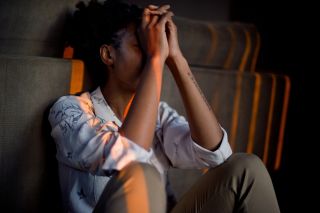Domestic Violence
The Struggle to Be Believed for Survivors of Abuse
Allegations against Puff Daddy have reignited discussions on domestic abuse.
Updated May 22, 2024 Reviewed by Gary Drevitch
Key points
- The number of celebrities being accused of domestic abuse underscores its prevalence across all demographics.
- Too often, after intimate partner violence, victims are not believed until proof emerges.
- To address IPV and support survivors, we must confront the societal norms and attitudes that enable abusers.

Bonnie had tried for years to get a protection order against her ex, who was harassing and stalking her. He had been violent on occasion, but she had no proof, and continued attempts for protection were always dismissed.
After her sixth attempt, her ex felt vindicated and set out for revenge. He began a smear campaign, convincing others that she had lied and that she was "only trying to ruin my good name." Those to whom she had turned for support began to second guess her; some even turned against her.
Several months later, she walked out of her home to find her ex standing in the driveway, waiting for her. She was assaulted again—but this time it was on camera.
She finally was able to get a protection order, but now her ex was singing a new tune. He was choosing to get therapy and his lawyer argued , "He is a changed man, your honor," and asked for sympathy and leniency. He could afford the best lawyer, while Bonnie only had a domestic violence advocate with her.
Bonnie was up against more than just her abuser; she was up against societal stigmas, and the protection that abusive people have when accused in the legal system. This is the difficulty that victims face when they try to come forward for protection from abuse, especially when their partner is powerful.
In recent news, the allegations of violence against Puff Daddy, a pop-music figure of considerable influence, have reignited discussions about domestic abuse and the challenging reality faced by many victims who come forward. The incident serves as a stark reminder of the broader societal issues at play.
One of the most troubling aspects of this situation is the perpetuation of victim shaming and disbelief. When individuals, especially those in positions of power, are accused of egregious behavior, many people's knee-jerk reaction is to be skeptical and to scrutinize the victim rather than the accused. This not only compounds the trauma experienced by a victim; it also perpetuates a culture of silence and fear that prevents countless others from speaking out.
The number of celebrities accused of domestic abuse underscores its prevalence across all demographics. Regardless of fame, fortune, or social standing, no one is immune to the destructive effects of abuse. These incidents serve as stark reminders that domestic violence knows no bounds and can affect anyone, regardless of their outward appearance or public persona.
Bonnie's harrowing experience highlights the devastating consequences of a justice system that fails to prioritize the safety and well-being of survivors. Despite her persistent efforts to seek protection, she found herself not only denied justice but also subjected to further harm as her abuser weaponized public opinion against her. So many victims are unable to get protection from their abuser, both due to society being unwilling to believe them, but also due to a justice system that often seems to be more interested in protecting the accused than the accuser.
To truly address the issue of domestic violence and support survivors, we must confront the societal norms and attitudes that enable such behavior to persist. This means listening to and believing survivors when they come forward, providing them with the resources and support they need, and holding perpetrators accountable for their actions. This also requires a multifaceted approach encompassing education, advocacy, and policy reform aimed at dismantling systems of power and privilege that perpetuate cycles of abuse, specifically by those with power. By fostering a culture of accountability and empathy, we can create safer communities where survivors feel empowered to seek help and abusers are no longer shielded from consequences.
if you or someone you know is struggling with domestic abuse, visit www.thehotline.org or call 1-800-977-SAFE


